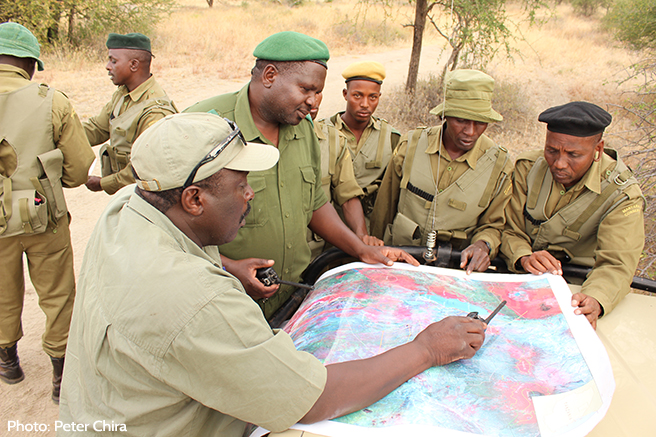Tipping the Scales of Justice Back in Wildlife’s Favor

I heard the other day on the radio that an offender had been acquitted, and that his acquittal was blamed on a failure of the criminal justice system. This was not a wildlife case, but it caught my attention because I had never heard of an acquittal being blamed on the entire criminal justice system.
One always hears that the arresting officer failed to recover critical evidence, or the investigation was weak, or the prosecutor was not well prepared for the trial, or the judicial officer did not properly apply the law. The blame is always laid on a single function of the criminal justice system. This, however, was the first time I had heard the accusation that the entire system had failed.
What we often fail to realize is that the various arms of the criminal justice system are interlinked, with each arm supporting and reinforcing the next. When there is a failure in one arm, however, there is a failure of the entire system. If the investigations are weak, the prosecution case will be weak and the judicial officer will have no option but to acquit. Similarly, if the law enforcement officer fails to prevent offences or to detect a crime, then crime spirals out of control.
The main reason why the criminal justice system in many African countries is not as strong and efficient as it could be is that the system’s individual agencies often operate independently of one another. The practice is always that each agency trains its staff independently of other agencies, and each agency evaluates its own performance and establishes its own intervention measures apart from the others. The agencies do not communicate with one another and, oftentimes, one agency’s missions and strategies contradict another agency’s, which undermines the effectiveness of the entire system.
Facilitating cross-agency collaboration
AWF’s Law Enforcement Program seeks to address these weaknesses in the wildlife criminal justice system. We are now running a series of trainings known as the Wildlife Criminal Justice Assistance Trainings. These trainings are aimed at improving the collaboration—both nationally and internationally—between law enforcement agencies and ensuring proper administration and adjudication of wildlife cases. Each training is divided into three modules.
The first module focuses on strengthening law enforcement through judicial interventions. This brings together all agencies involved in administering and adjudicating wildlife cases and gets them talking about their national wildlife laws, policies and the challenges they encounter in administering justice to wildlife criminals. At the end of the module, the agencies are asked to come up with interventions to overcome their challenges and establish collaborative frameworks.
The second module focuses on strengthening wildlife law enforcement through proper case management. Here we delve into the fundamentals of adjudicating and administering wildlife crimes. The agencies learn about the anatomy of a wildlife investigation, proper management of evidence and navigating the judicial process. This module is designed to enhance inter-agency investigations and prosecutions of wildlife crime as a means of addressing poaching and trafficking of wildlife products. Discussions on inter-agency standard operating procedures for investigating and prosecuting wildlife crimes are initiated, and the aim is to standardize inter-agency collaboration.
The final module focuses on strengthening wildlife law enforcement at the regional level. Because wildlife crime is often trans-boundary in nature, it is necessary for the agencies of different countries to work together to address transnational wildlife criminal activity through information sharing and cooperation on wildlife cases.
The incremental nature of the Wildlife Criminal Justice Assistance Trainings ensures that agencies comprehend, identify weaknesses in, and ultimately strengthen their systems at the national level, and then cooperate regionally to fight the illegal wildlife trade.
Training in Ethiopia
Earlier this month, on October 6th and 7th, AWF and the Ethiopian Wildlife Conservation Authority, with support from the U.S. Department of State’s Bureau of International Narcotics and Law Enforcement Affairs held a Wildlife Criminal Justice Assistance Training in Addis Ababa. The training brought together wildlife and criminal justice agencies in Ethiopia, including the wildlife authority, members of the judiciary, members of the public prosecution service, police and customs agency representatives. During this training, the first module was delivered with the goal of strengthening collaboration between those agencies over time in addressing wildlife crimes in Ethiopia.
By improving how our wildlife criminal justice system operates and ensuring collaboration and information sharing among the various agencies, we can tip the scales of justice back in the favor of wildlife. Those who commit crimes against our wildlife and deprive all of us of our natural heritage must be brought to book and feel the full measure of the law.
